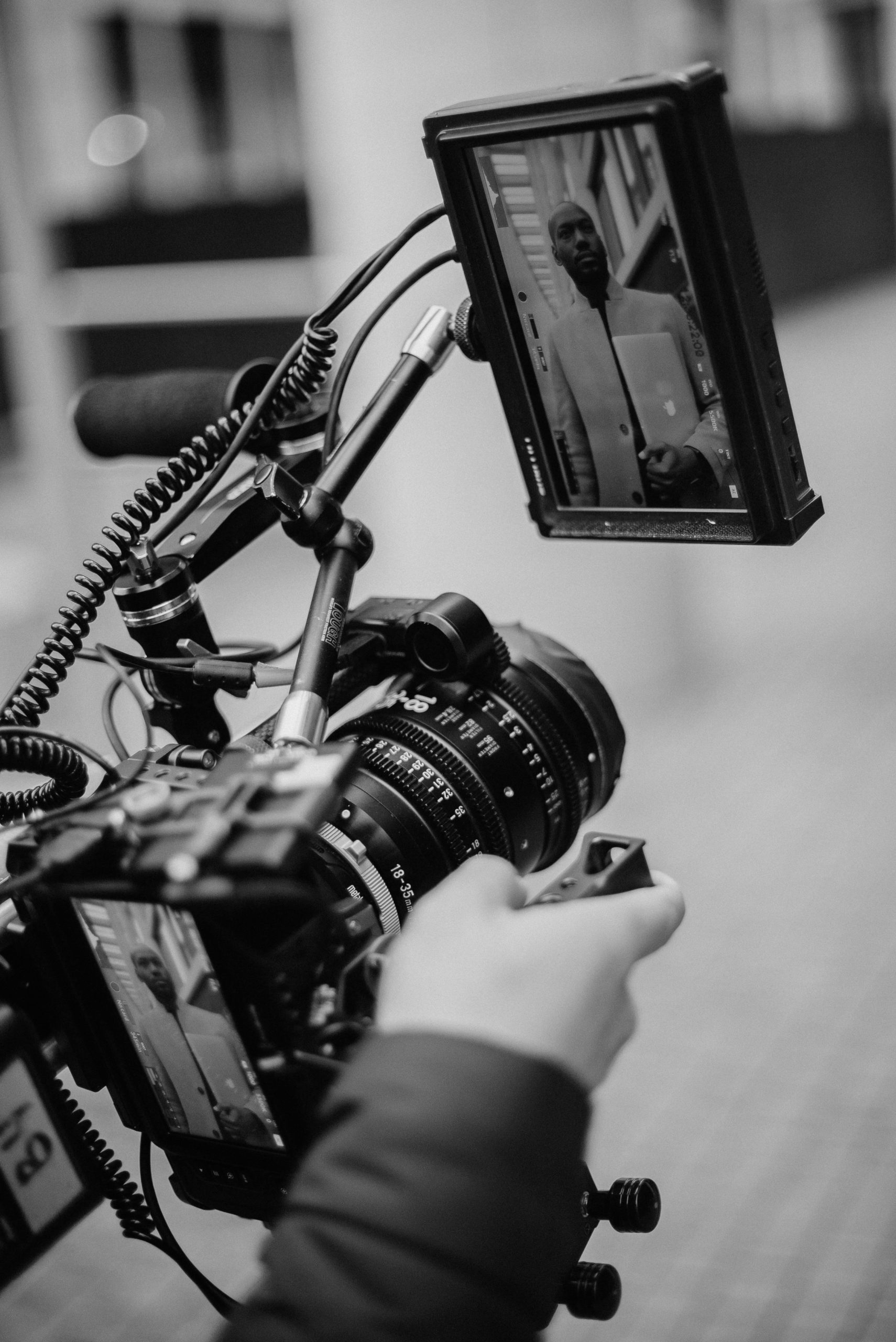As soon as sound was introduced in film (The Jazz Singer, 1927) music became a key component of filmmaking. No film is truly complete without music. The music is a major mechanism for creating tension and conveying the tone of a story,
Finding music to complement your film is easy. What’s not so easy is getting the official permission to use that music in your project. If you have your eye on a piece of music that you want to include in your next film project, you need to read this guide to learn the ins and outs of music licensing for film.
The Two Steps of Music Licensing for Film
Picture this: you hear a song on the radio. You think to yourself how perfect it would be in that one scene of the movie you’re making. It’s great to have such a clear vision for your project, but the licensing process is not that clear. You can’t just download the mp3 and chuck it into your editing suite.
The process of getting the official rights to music is confusing, but we’re here to help you sort it out. Getting permission to use pre-recorded music requires two specific licenses: the synchronization license and the master use license.

Synchronization License
The publisher owns the synchronization license for any piece of pre-recorded work. The publisher is in many cases the person with the writing credits on the song.
It’s important to note that a song can (and often does) have multiple writers and publishers. So if you want to get a synch license for a pop hit, you’ll likely be writing more than one query letter. Often a song that’s performed by a specific artist was written and published by another. For example, Prince actually wrote the song Manic Monday by The Bangles.
Master Use License
The person or organization who owns the actual recording of the song owns the Master Use rights. You need this license when you want to use a specific recording of a song in your film. In most cases, it’s the record label who owns these rights. But in some cases, it’s the band or performer themselves.
How Much Does it Cost to License Music for Film?
If you’re contacting a company like Universal Music, you can bet they’ll charge a pretty penny to use their songs for your project. A good rule of thumb is; the more famous the song, the more expensive it will be to license. However, everything is negotiable. Licensing fees vary based on different factors. Things the owner will take into account include the number of times the song is used, in what capacity, and for how long. If a song owner likes the project, they might license it to you for a lower fee than they normally would.
Licensing for Film Festivals
Indie filmmakers can ask for a reduced license if they submit a film to a film festivals. A Festival Use License is based on a specific number of screenings. Once that number is exceeded, the filmmaker will have to pay increased licensing fees. So filmmakers need clear license term before a film is distributed, .
The good news is that you’ll only need to pay increased licensing fees if your film is really successful. Maybe you got approached by a few distribution companies after the festival. In that scenario, you’ll probably be able to afford the additional fees.
Is There a Cheaper Way?
There are many online libraries that offer free or cheap licenses for music. Usually, it depends on the type of project it’s being used for. For example, a license for individuals making projects for personal use will be much cheaper than a big company making a film for international distribution.
Regardless of your project’s end game, using a music library like ours can help you easily (and legally) find music to use without having to jump through so many hoops. If you’re an indie filmmaker working on a shoestring budget, you might want to consider music that’s already in the public domain.
What About Original Music?
Don’t think you have to use someone else’s music for your film. Original music (also known as the film score) is another great option if you want to skip licensing altogether. There are a few ways to do this. You can hire a composer directly. If you know a composer personally, that’s lucky; if you can get them on board for an affordable fee, that’s even luckier. But if you don’t have a music composer in your back pocket, you can hire one to create original music for your project.
But who owns the original film score? This will have to be outlined in the contract ahead of time. If you, the filmmaker, pays a composer a set fee in advance to create an original score for your project, it’s likely that you (the filmmaker or the production company) will own the publisher’s share of the work. It’s common for the composer to own the writer’s share.
The rights to an original score are based on the Composer Agreement, which will depend on the rights agreed upon at the time of the contract. It’s important as a filmmaker to negotiate all potential future rights in advance. These future rights can include worldwide synchronization, subscription television, advertising, etc.
Now You Know Your Music Rights
What’s next?
Now that you know the basics of music licensing for film, you can go ahead and start getting music for your project. It will depend entirely on your budget and the resources you have to track down the right people.
Just make sure to do your research before you go ahead and use music in your film. The last thing you want is a lawsuit when all you’re trying to do is get your work out there. If you’re looking for music, check out our services. We can find you the perfect tunes, or create bangin’ original music for your next project.